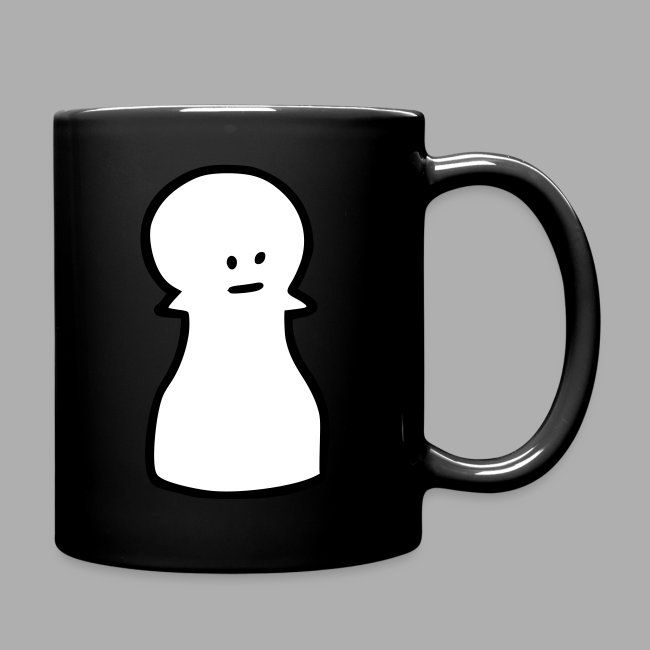The vision of Lichess and its founder Thibault Duplessis
A man with a passion for coding and chess created a platform that is now known as one of the biggest chess sites in the world. What's better is that it is totally free of charge for all, be they, professional players or amateur learners. Yes, we are talking about Thibault Duplessis, the founder of Lichess. From regular donors to professional players to a simple kid from a remote place that has no chess culture, everyone loves this site because it's so seamless, ad-free, and open to all. The exclusivity of this app is what separates it from the rest. We had the opportunity to have a chat with the founder of Lichess and their team about their values, vision, journey, and more. This exclusive interview is a prime example of how a passion and a dream can turn out to be so massive and well-loved among people.
Lichess - Chess for all
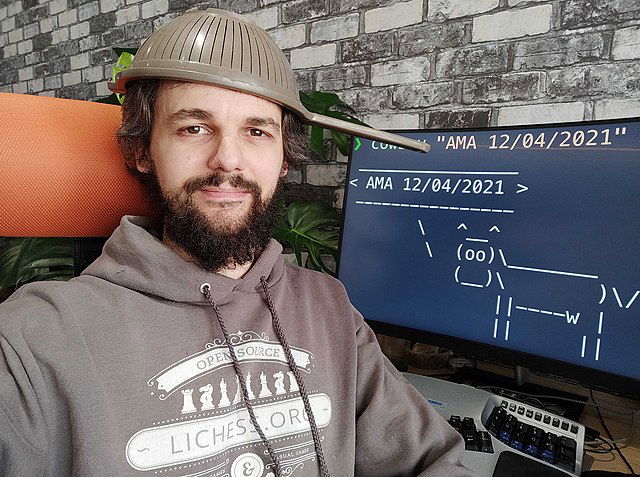
In a world where everything is about business and gaining profit, a man with passion and a dream carved his way. The founder of Lichess, Thibault Duplessis, is a person that not everyone might be familiar with. However, what he created is widely known and recognised by everyone who loves and plays chess. The vision of this person was unique, and what is better is that he stuck to the core values even after gaining so much success and popularity. Thibault wanted to build a platform where everyone could enjoy the game of chess to the best of its capability without having to worry about ads, subscriptions, or anything else, and he managed to do that. And that's what he did with Lichess. Over the years, he was supported by other people who shared his vision, and their hard work led them to where they are today.
Lichess was founded in 2010. The name Lichess is a "combination of live/light/libre and chess". With the website, very soon apps for Android and iOS were released in 2015. According to the website similarweb.com Lichess is ranked second only to Chess.com as the most popular internet chess servers in the world. It has close to a 100 million visits (not unique) in a month. The website is built under the open source model and hence all of its features are of the highest quality. If you are into chess there is something here for everything. If you are a player - you can play games of any time control, solve problems, analyze your games, watch videos and more. If you are a chess enthusiast, Lichess has one of the best broadcast pages in the world of chess, with each LIVE tournament that is happening is neatly arranged. If you are a streamer, Lichess helps you promote your streams under the streamers tab. If you are an organization, you can create your own community, a place where everyone can play chess together. If you are a chess coach, you can put up your profile and get students to make a living. The website has just about everything that the chess world needs.
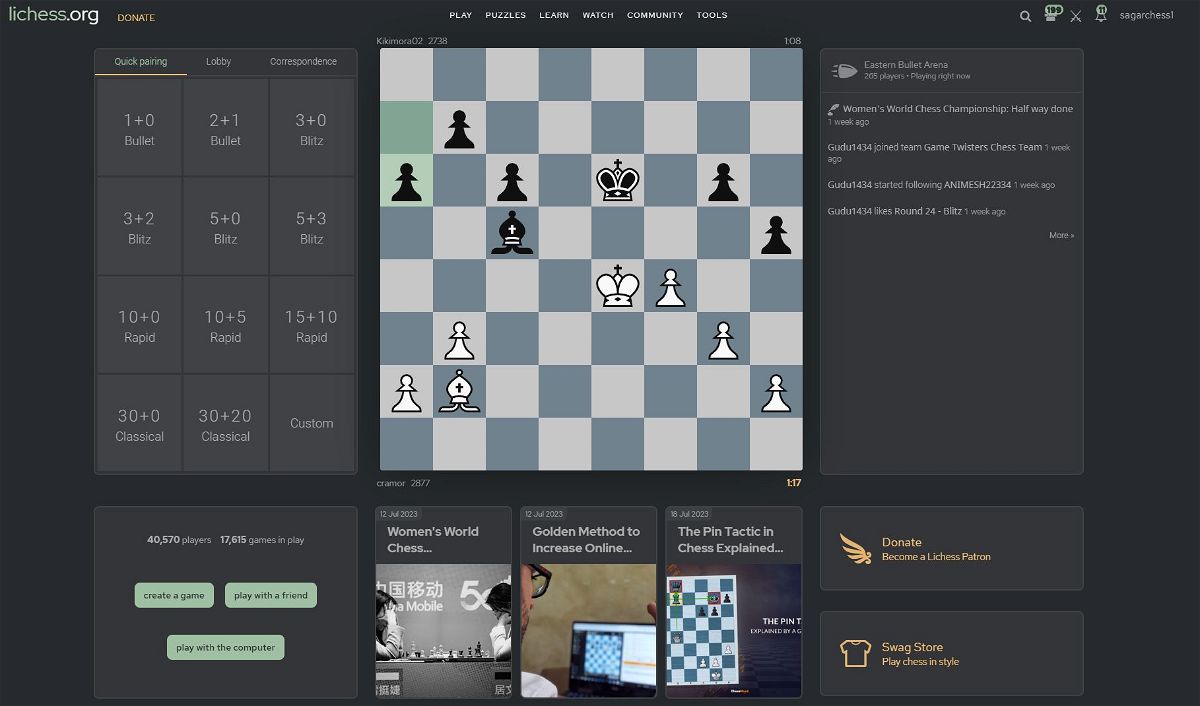
The website was doing well, but the big boost came when Magnus Carlsen, one of the greatest chess players of all time, started playing on the platform. Magnus' reason was simple - he did so, because he was enjoying it, and that attracted so many others to do the same. Over the years many chess players have supported the website and today it has become a huge asset to the chess world. We caught up with the founder of Lichess Thibault Duplessis. We hope that the conversation below inspires you.
Interview with Thibault Duplessis
Sagar Shah (SS): Tell us a bit about yourself and how was life before Lichess? How did the idea of Lichess come about?
Thibault Duplessis (TD): I was born in France in 1984, I started programming Casio calculators in high school, then studied computer science at University. I worked for a few years as a software engineer, while contributing to some open-source projects, and starting a bunch of my own. Programming was a hobby, so I was constantly having fun trying new things out. My coding projects were short-lived; I would draft a POC [proof of concept], publish the code, and then move on to something different the next week. One of these disposable projects was an online chess board, as I wanted to experiment with real-time communication in web browsers, back in 2009… Only, this time people started using it, and it became somewhat popular. I was surprised, but I was also having fun, so I kept working on it. I never had the idea of making a chess server. The chess community needed one when by chance I was laying out the foundations for it.
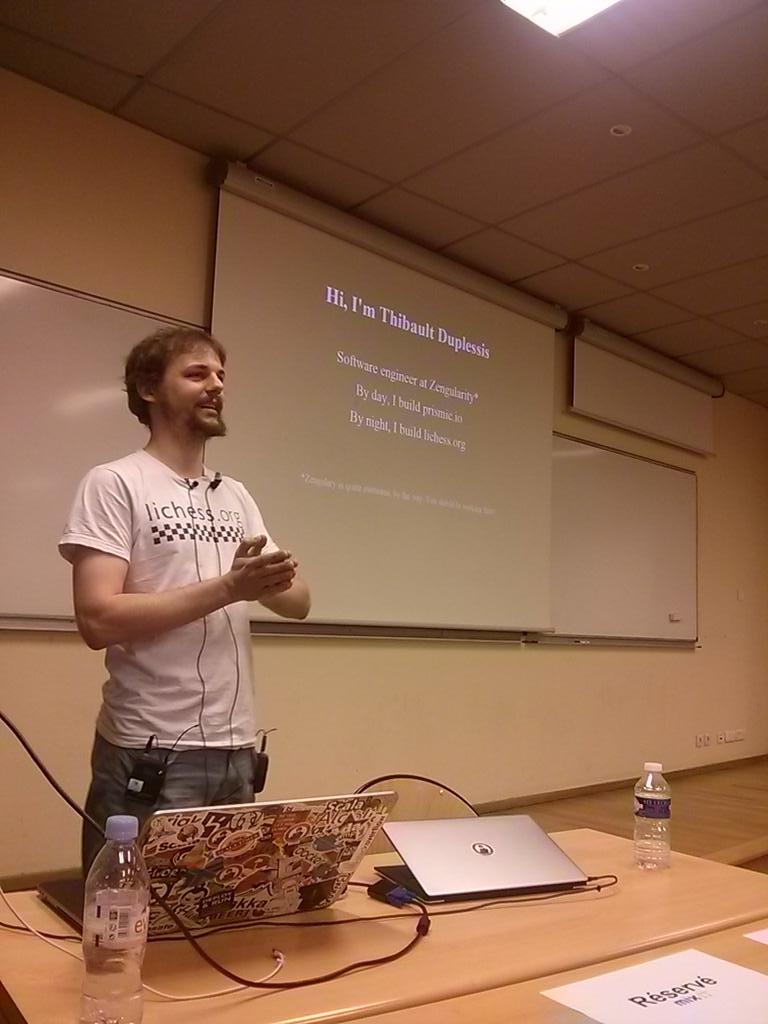
SS: What was the inspiration to keep it open source and free of cost?
TD: Being open-source, free of cost and free of ads was the point from the beginning. The chess community is made of very smart people, who will not be satisfied with corporations using their hobby for profit, with mediocre proprietary software. Instead, the chess players of the world want to take matters into their own hands: build their own tools, and publish the code and the data to strengthen the chess ecosystem. This is what Lichess is about. Chess software by the players, for the players, serves no other purpose but their own. We don't have investors or shareholders, and we're a charity, a registered non-profit in France. Lichess can't use chess players, it can only be used by them.
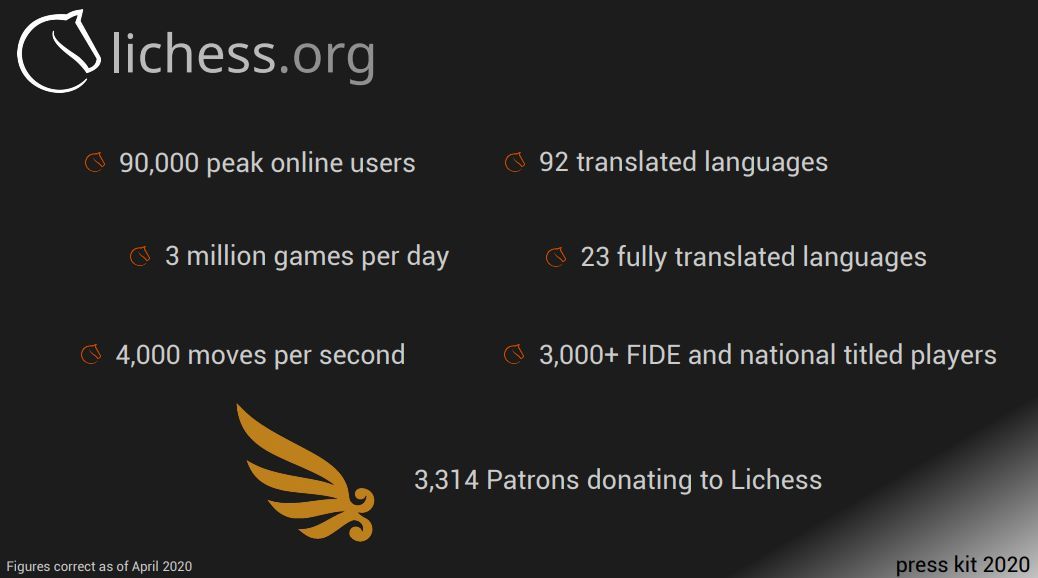
SS: Was there never a conflict between keeping ads or a freemium model instead of a completely free site run on donations?
TD: There never was. The deal is that we succeed with our core values intact, or that we fail trying. We never compromised on our principles. Because then, what would be the point? We use the donation money we receive to improve and maintain the site. If we get more donations, we'll get more things done; if someday we get less, things will slow down. We don't have to be profitable, just to be sustainable.
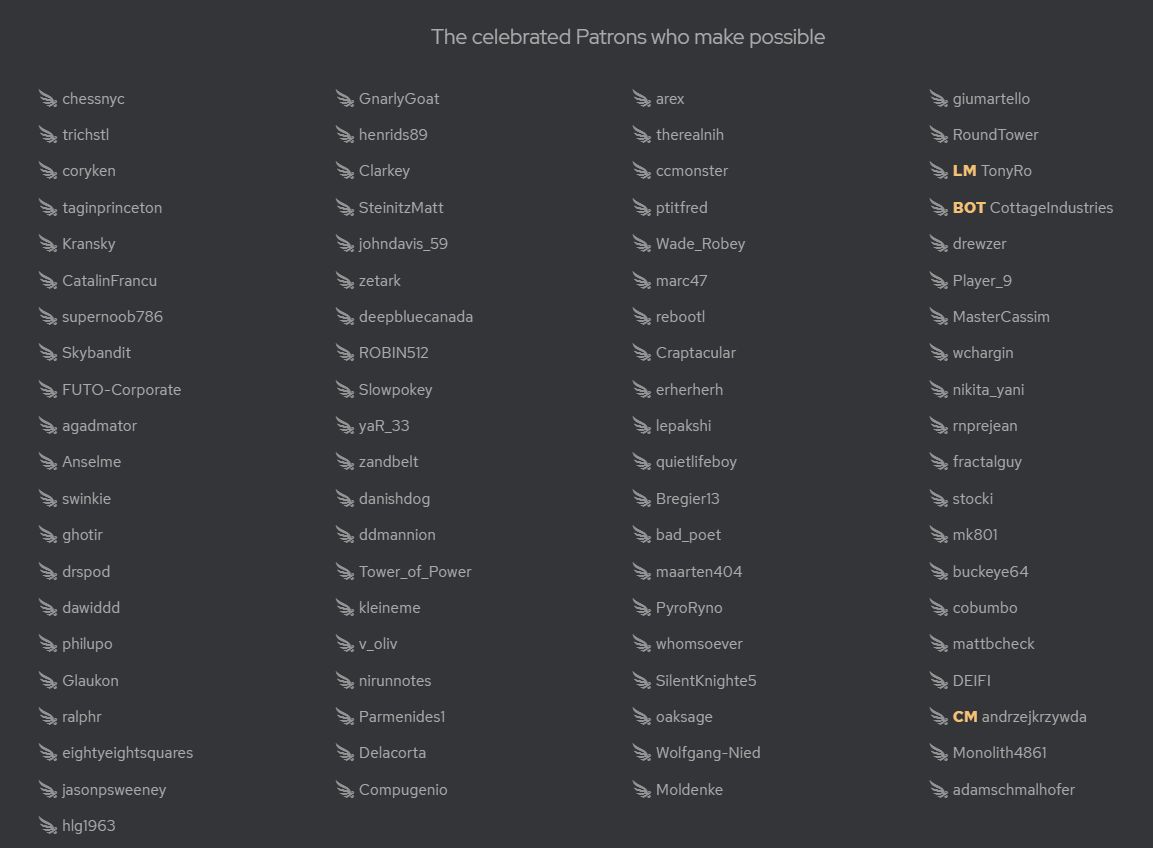
SS: How was the initial team built up?
TD: It happened organically, as with most open source projects. It was a one-person hobby project for a couple years, with an IRC (Internet Relay Chat) channel which people would join to discuss the project. Volunteers would come and go, some making a single contribution, others sticking around for years and really pushing the project forward. To join the Lichess team, one has to be helpful to the chess community. Either by contributing to a Lichess open source code base, or by using its API (lichess.org/api) to build something cool, or by helping out other players in forums and chats. At some point I'll ask you to join the team. It's not a big deal, it's just a group of people who are interested in the same thing.
SS: How are Lichess' servers so good? The experience of playing on it is seamless.
TD: Thank you! The Lichess website feels very snappy because it's lightweight. For a simple reason: it contains zero ads or tracking. The slowness of other websites comes from the fact that they use your computer against you. They spy on you, track you, send your personal data to third parties, and load ads that slow down your browser. We do none of that, and therefore we're fast - it's a nice side effect of being ethical. Another reason why the project is technically sound is because it's open source and driven by programmers. Our hands are free to strive for the best possible performance, and we can afford to spend time on optimizations and long-term improvements. We don't need to find new ways to display more ads or convince people to spend more money. Our only goal is to make online chess better, so we can focus on that.
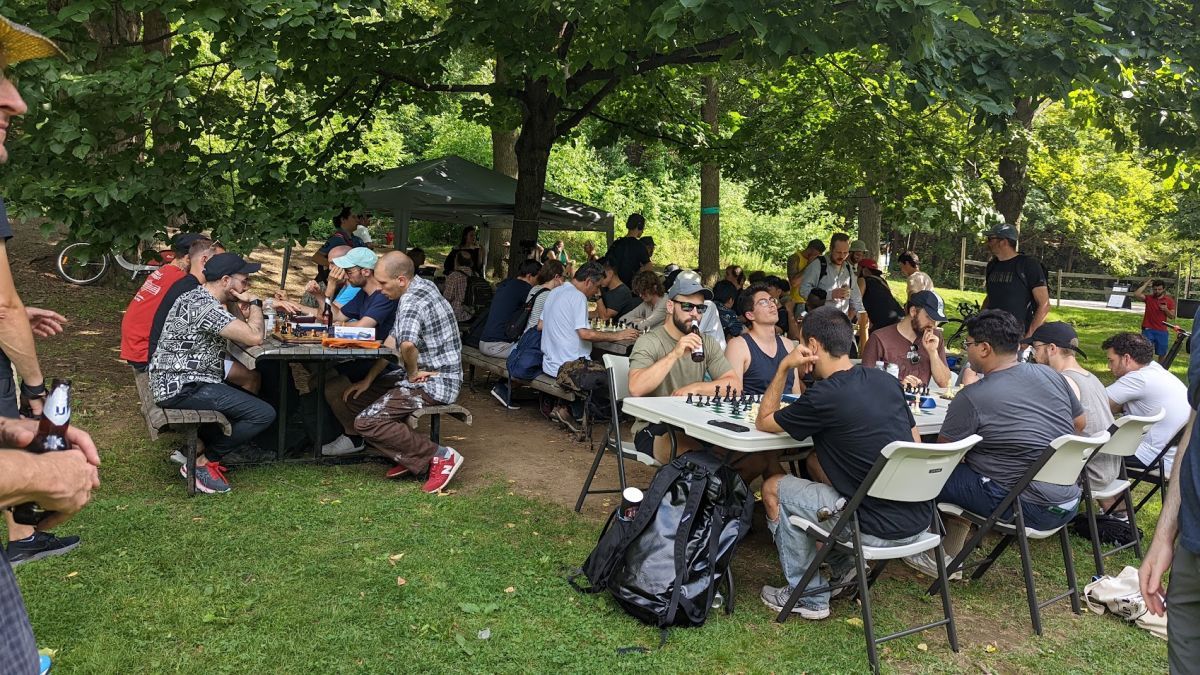
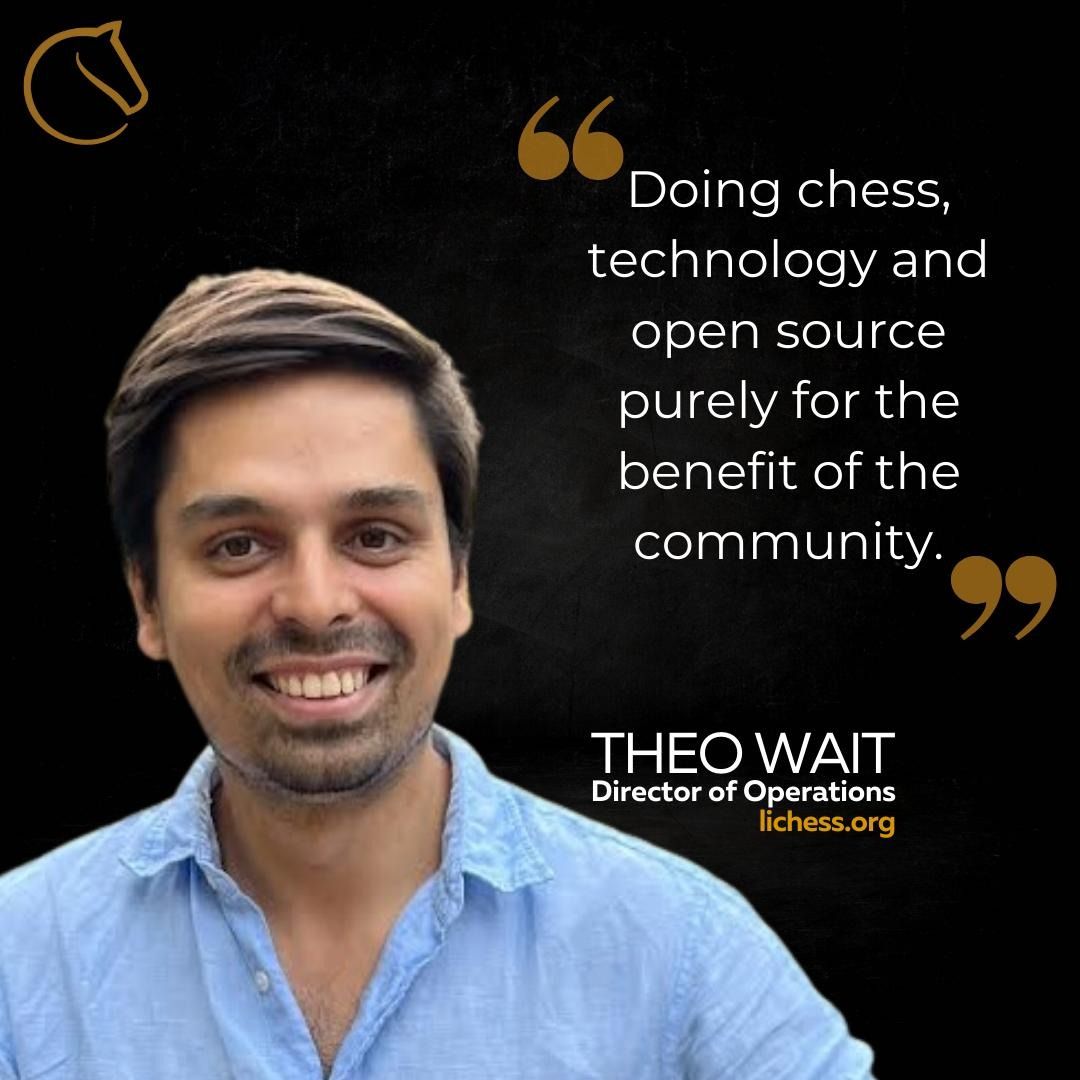
SS: Magnus Carlsen became one of the biggest endorsers of Lichess by playing there. How did this happen?
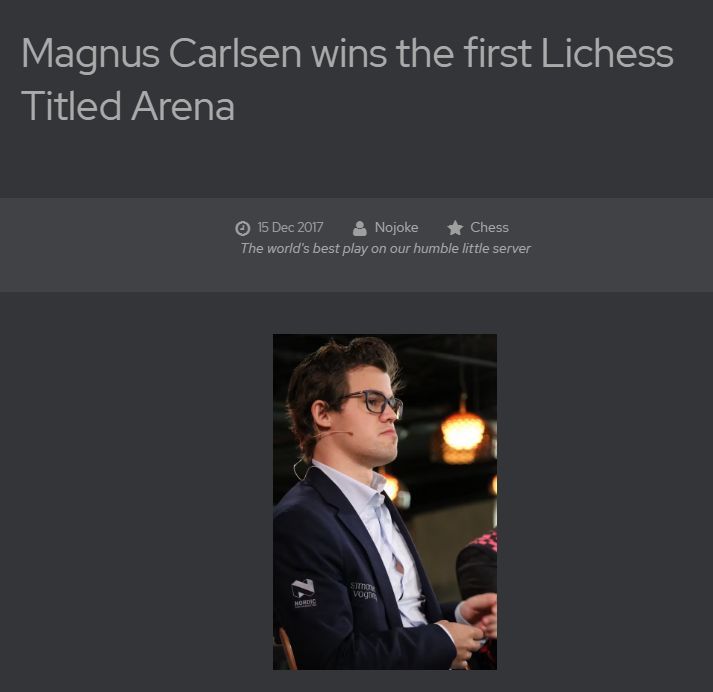
Theo Wait (TW): The moment when Carlsen freely chose to regularly play on Lichess, was massive for the team, and also felt like it gave us an implicit acknowledgement of our charitable purpose. It happened purely because he enjoyed playing on Lichess, we were told it was his favourite website to play on. We didn’t pay him, or come to any other kind of agreement or arrangement with him. From what we understand, he came to Lichess because he enjoyed the site and our work, appreciating how smooth and responsive Lichess was, and purely out of his goodwill – he regularly donated back our Titled Arena prize funds when he won them.
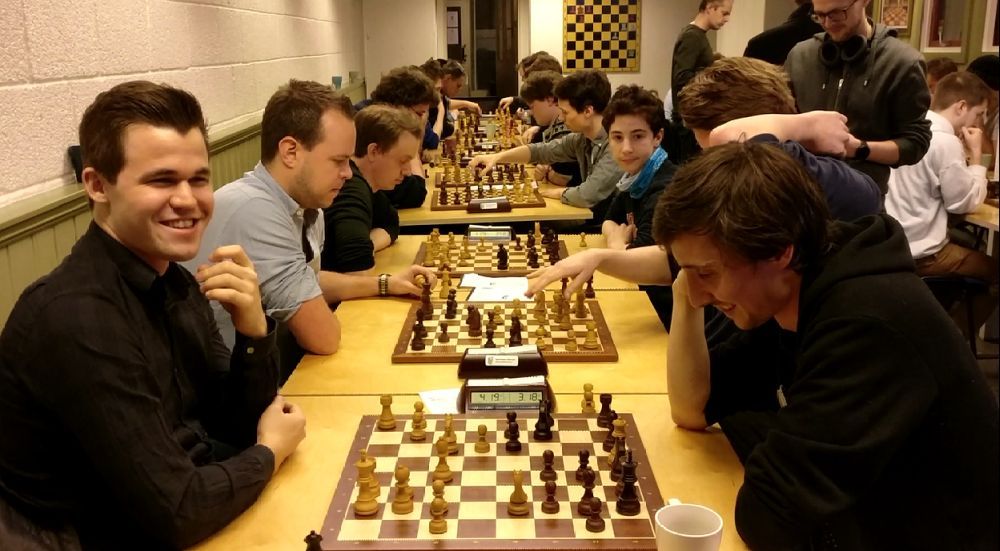
It was perhaps the greatest compliment we could receive, a testament to having created a platform the world’s best player genuinely enjoyed using. It was a very proud moment for Thibault and the team, but at the same time, we wanted to balance that pride with respecting Magnus’ privacy and to not abuse his goodwill for our marketing. We understand sometimes players just want to relax, without the pressure of being watched or marketed. Since the merger of the PlayMagnus Group and Chess.com, he’s barely been around – we assume he’s now under an exclusivity contract with Chess.com, as many of their official ambassadors and streamers are – but it was great while it lasted and those memories will always be a high point for us.
SS: What are the biggest strengths of Lichess?
TW: Like many charities, the biggest strength of Lichess is absolutely our community. We need a lot of hands to help contribute to running the website these days, we need a lot of voices to help us be visible and advocate for us. We’re fortunate there are so many passionate and talented people from all stages of life, parts of the world, and with different life experiences, who appreciate the work that we’re doing. We’re always looking for those willing to contribute – be that translation, coding, advocating for us, sharing excess CPU, or financially - if interested you can read more, here.
SS: What are the things that Lichess can improve on?
TW: Lichess went through a significant amount of growth during the pandemic, and while our technical infrastructure and servers scaled, our organizational capabilities are harder to scale. Like many FLOSS (free libre open source software) projects, Lichess has historically been run by absolute consensus, and like many FLOSS projects, our active contributors hitting Dunbar’s number (a socio-anthropological concept of the number of active social links an individual can maintain) has made running the site by absolute consensus unwieldy.
We’re still in the process of transitioning our organizational structure and governance to ensure we keep the best of our flat hierarchy, and collegiate culture, and also help ensure the team is all pulling in the same direction. It’s not as immediately beneficial to the community as a new feature or a new technology – redrafting by-laws and terms of references and plugging that administrative work regularly is pretty hidden internal work – but it’s important to ensure the sustainability of Lichess for the long-term. Externally, we could be less afraid to promote ourselves and generally champion our cause more than we do. Most of the chess world, including many of our users, probably still don’t know we’re a registered charity rather than a business. We could share the impact and support the Chess world donations allowing us to do, more than we currently do.
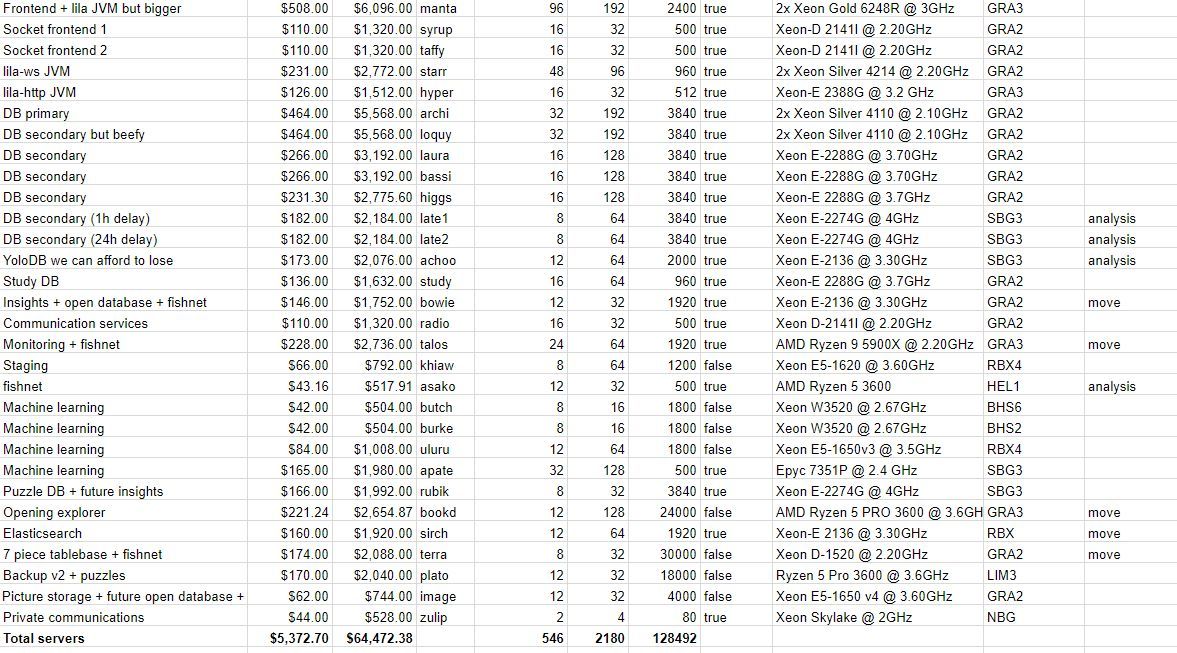
SS: What does the current team of Lichess look like?
TW: The current team is pretty broad. If you consider everyone who has contributed to a translation of the site, or a contribution to our code, then the size of the team is in the high thousands. Pragmatically, what we consider our “core team” (those who are basically active daily, working closely with other contributors) numbers in the hundreds. Roughly 20 people are paid or eligible to be paid, equivalent to about 7 full-time positions. Our team works fully remotely, with people all across the world, at all levels of chess ability from beginners to professional players rated 2500+, and encompassing all ages, genders, careers, religions, philosophies, ethnicities and life experiences. We’re pretty strongly represented by Germans, French, Americans and Indians by nationality in particular. Despite being a French charity we’re very international with English being used as the team’s common language.
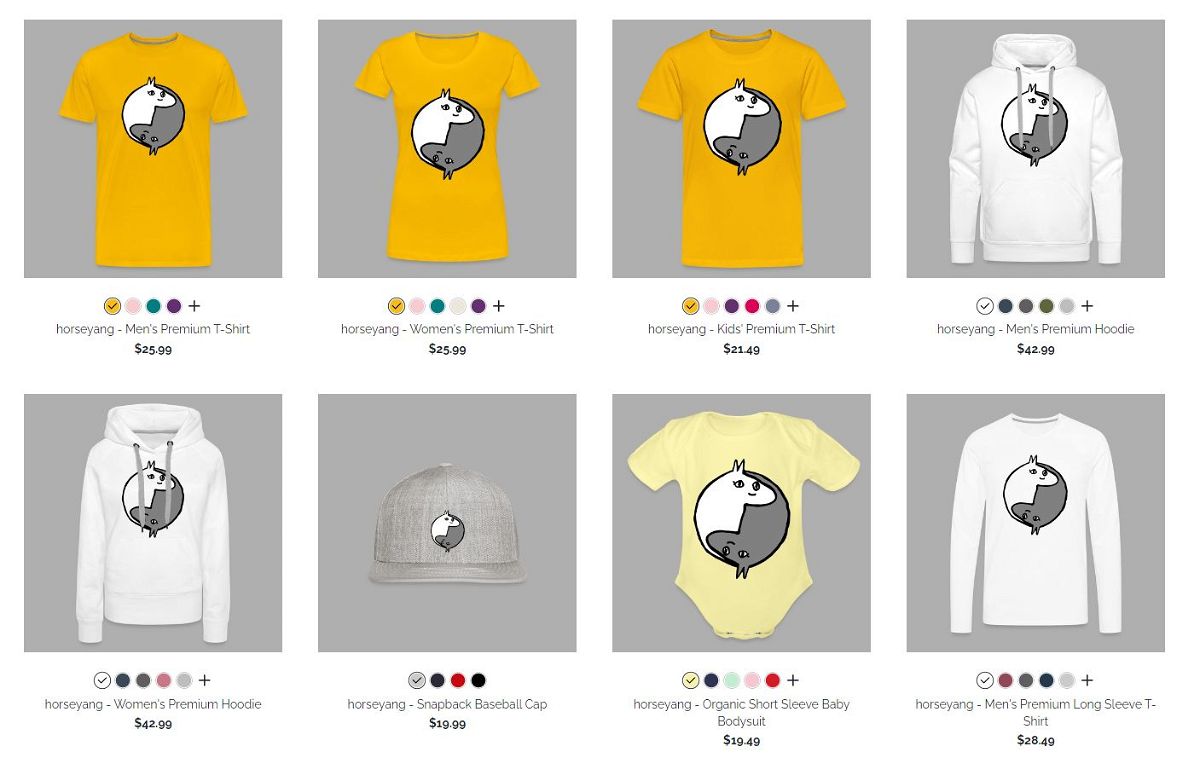
SS: What are the future plans of Lichess?
TD: The future’s bright for online chess. We plan to continue our plans so far – we’re completely rewriting a new Lichess mobile app, to ensure those without laptops or desktops can freely learn, study and play chess. We’re also planning to release some new features, initially on the website, specifically around chess education. We have other projects in the early stages too, such as voice recognition, and improving some existing features, but we’re still uncertain of their feasibility. As always, anyone will be able to use all of our features, regardless of their personal financial circumstances. We truly appreciate the tens of thousands of donors and contributors who through their generosity ensure anyone – from a kid in Bihar to a pensioner in Moldova – has a level playing field to learn, study and play chess. Regardless, given the changes to the online chess ecosystem created by the PlayMagnus Group merger with Chess.com, we need to continue to keep a lookout for any turbulence or challenges and be responsive to them.
SS: What is the vision of the organization?
TW: Assuming no budgetary issues or external challenges, we have multiple visions, given Lichess itself has a dual nature. On one side, we’re a charity focused on chess and on the other, an advocate of digital rights. Within chess, our vision is to grow, expand, and promote the play and study of chess and its variants. We want to allow people everywhere the freedom and space to be exposed to chess without being commodified. Everywhere in life, you’re either sold to or are the product these days; we think it’s important to be a kind of “digital oasis” from that and be a bit of a throwback to when the internet was done more out of love and less out of business. It can take a psychological toll to always be expected to pay for something, or create a kind of financial inequality to a game which is ultimately very accessible.
Within digital rights, our vision is to highlight that paywalling or hiding knowledge often impedes progress rather than furthers it. That by being transparent and pooling knowledge, we can create a communally owned “digital commons” that is solely for public benefit, and show that a great service or product can be created with that in mind – which the public is willing to support both ethically and sustainably. Our own measure of success or failure is closely interlinked to the strength of grassroots support and contributions we receive.
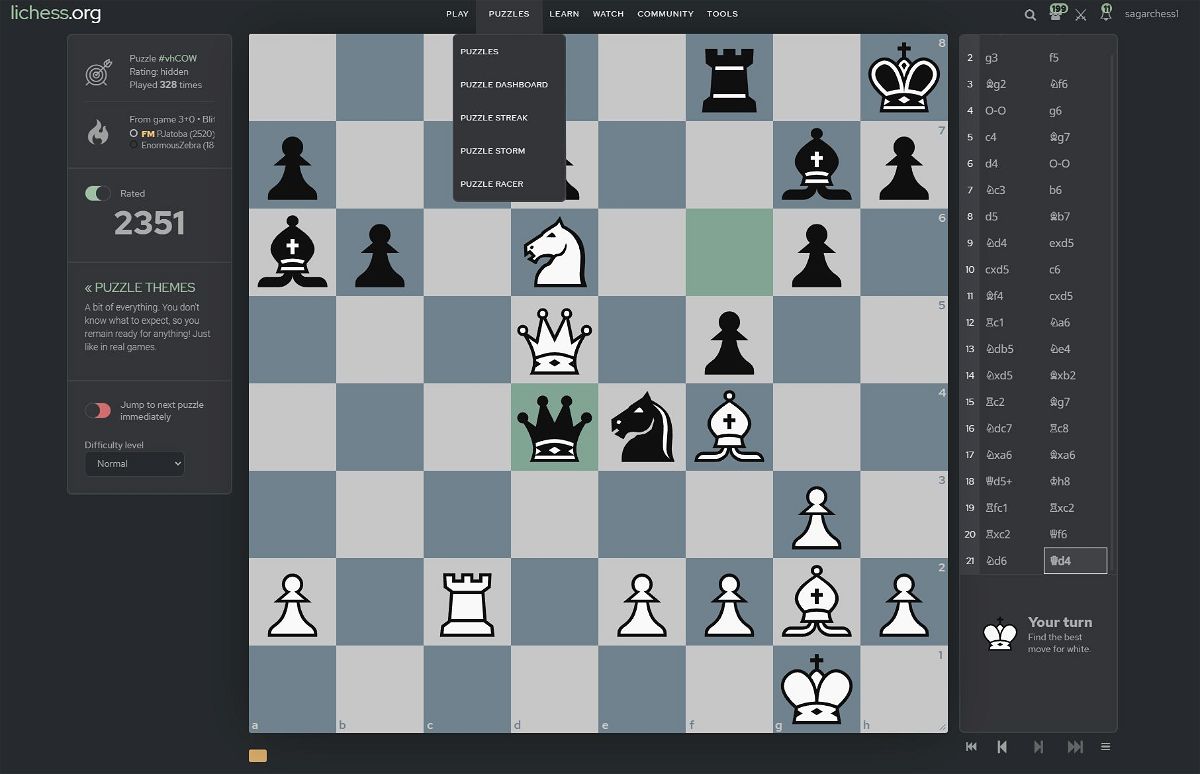
SS: How does Lichess view its status relationship to Chesscom? Everyone in the chess world considers them as competitors, what is your take on it?
TW: From our perspective, the largest tension between Lichess and Chesscom probably comes down to our different philosophies, and on our side is not directly related to market share. We’re a charity working for the public benefit, so everything we do is out of the belief it’s in the chess community’s best interests. While ultimately both organizations want chess to rise in the public consciousness, our approaches are often diametrically opposed to those organizations whose reason for existence is to maximize profit and deliver value to shareholders and investors. From some previous and ongoing business decisions of Chesscom, we can imply that at least some of the investors and owners of Chesscom probably do view us as competition, from a business perspective.
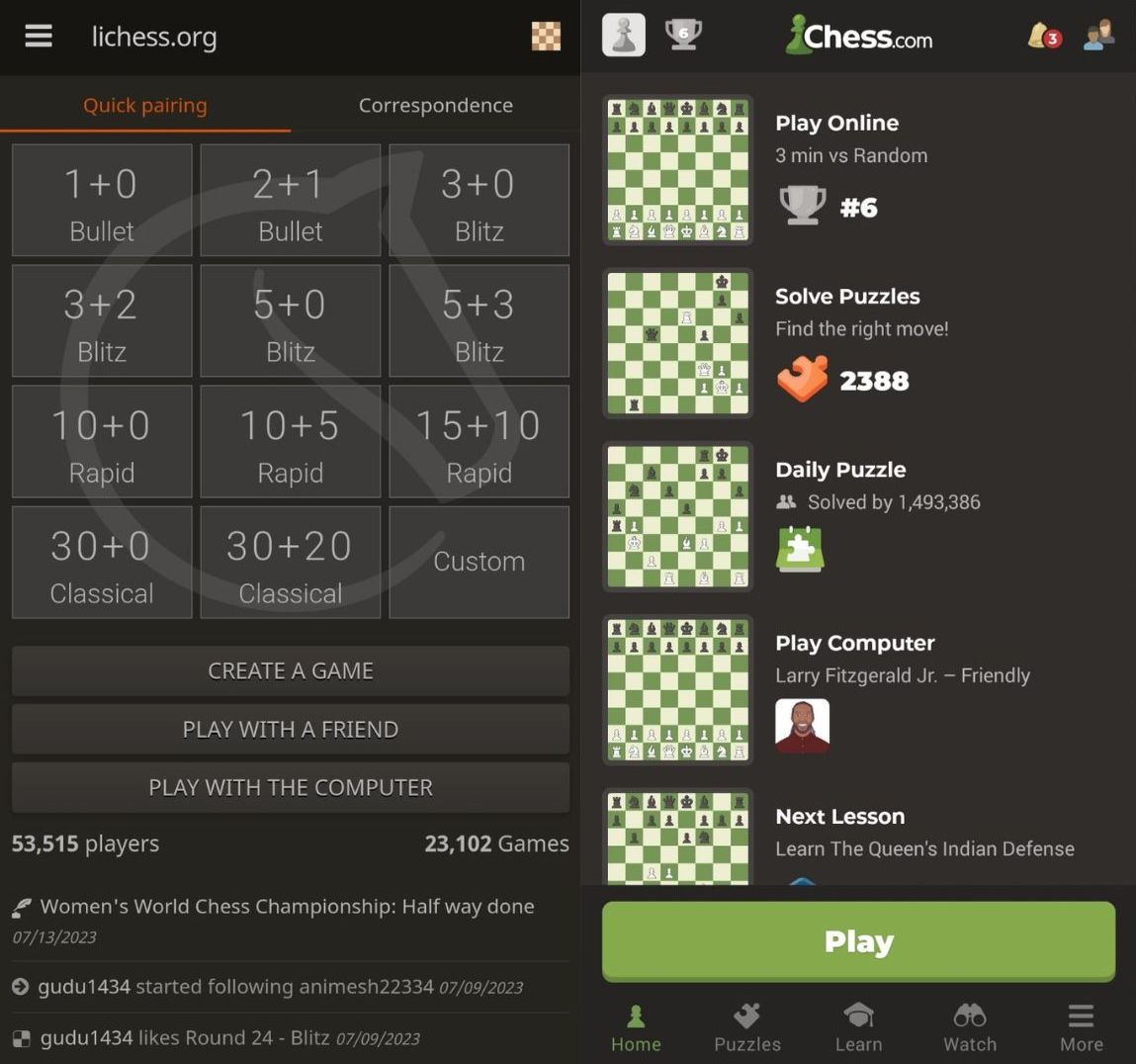
At the end of the day, Lichess offers very similar features to other platforms except that they are freely available to everyone on Lichess, due to our donors' kindness. Because of this, some within Chesscom probably do believe this represents an “opportunity cost” to their business revenue. As highlighted in our answer to the previous question, we don’t want to commodify the chess community because the people who run Lichess are entirely from that community. That isn’t to say we’re not ambitious – Lichess is now one of the biggest open-source projects (and certainly the biggest open-source game server) within tech at the moment. In terms of players online, we’d make the top 10 list on Steam (a games marketplace and library which shows the number of players online in many popular games) 24/7, 365 days a year. But our motivations, goals and objectives are not defined solely by our revenue.
SS: What would be your message to the chess lovers out there?
TW: You’re not defined by your rating, don’t stress about constant improvement, and ensure you’re taking the time to appreciate the creativity and beauty of chess!
